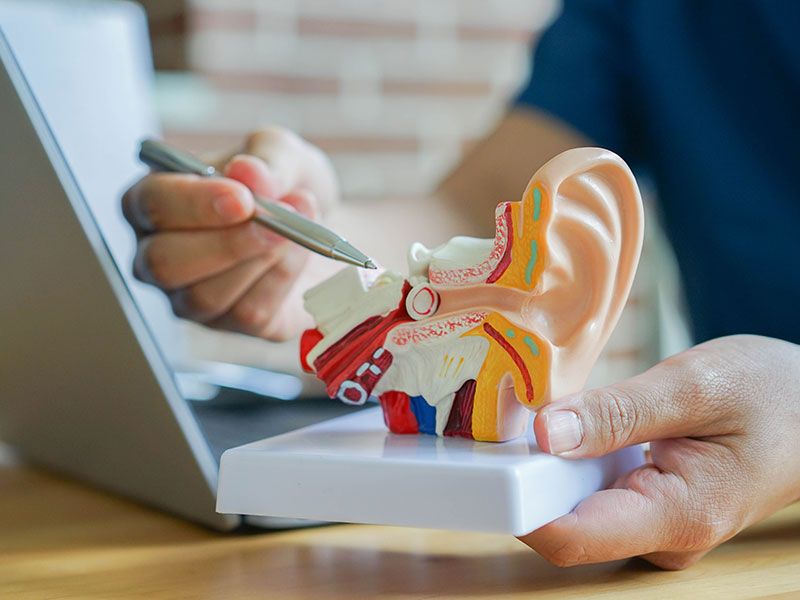Do you suspect that you have hearing loss and are interested to know what are the best questions to ask your hearing professional when you finally have your appointment? Your hearing professional is really an invaluable resource when facing the possibility of hearing loss for the first time. Knowing the right questions to ask your hearing professional will ensure you start off with the best way to improve your hearing. We’ve prepared a list of the 10 most important questions to ask your hearing professional so that you’re ready when you meet with them the first time.

Here are the 10 questions we recommend you ask your hearing professional:
- What do the results of my hearing test mean?
- What type of hearing loss do I have?
- Do both of my ears have the same hearing loss?
- How can I treat my hearing loss?
- Will hearing aids help?
- Why are there different types of hearing aids?
- How long will hearing aids last?
- Are hearing aids covered by OHIP?
- How can I prevent further hearing loss?
- Can my diet affect my hearing?
1. What do the results of my hearing test mean?
When you meet with your hearing professional, you are likely to undergo a hearing test. When you receive your hearing test results, make sure you ask what these results mean. Your hearing professional will identify which frequencies are giving you problems. For example, if you currently have difficulty hearing speech sounds such as consonants, you likely have hearing loss in the higher frequencies. Understanding the results of your hearing test lets you make better decisions about solutions for your hearing loss.
2. What type of hearing loss do I have?
There are three main types of hearing loss: sensorineural, conductive, and mixed hearing loss. Sensorineural hearing loss occurs in the inner ear (the auditory nervous system) that is in charge of delivering sound to the brain. Sensorineural hearing loss is permanent and can’t be cured. Conductive hearing loss occurs in the outer or middle ear. These are highly treatable and may not be permanent. Mixed hearing loss is a combination of sensorineural and conductive. Knowing what type of hearing loss you have paves the way for choosing the best way to treat it.
3. Do both of my ears have the same hearing loss?
According to studies, our ears hear differently from one another. The left ear is better at hearing music, emotion, and intuition while the right ear is more tuned for logic and speech. Knowing which ear has a greater hearing loss lets you understand how your hearing may be connected to your ability to understand emotion or logic.
4. How can I treat my hearing loss?
Depending on your type of hearing loss, there are four key ways your hearing professional will refer to:
- Remove wax blockage. Earwax blockage is a popular reason for hearing loss.
- Surgical procedures. Some hearing loss can be treated with surgery.
- Hearing aids. If your hearing loss is due to damage to your inner ear, then hearing aids are a way to help you hear better.
- Cochlear implants. If your hearing loss is more severe, a cochlear implant (bypassing the damaged parts of your inner ear to stimulate the hearing nerve) may be recommended.
5. Will hearing aids help?
If your hearing loss is due to damage to your inner ear, then asking for more information on hearing aids is definitely a question you should ask. Your hearing professional will explain how hearing aids can improve your hearing.
6. Why are there different types of hearing aids?
There are many different types of hearing aids, and you should ask how each one could match your lifestyle. You may want an invisible hearing aid, one that charges quickly, or even one that connects to other smart devices. Knowing all different types that are available will help you choose one that is right for you.
7. How long do hearing aids last?
Another hearing aid related question is to ask how long a chosen hearing aid lasts. Generally, most hearing aids last from 5 to 7 years. The longevity of a device and its warranty is definitely something to consider when making your decision.
8. Are hearing aids covered by OHIP?
Being in Ontario, this is a popular question with all of our clients. Currently, OHIP provides partial coverage of hearing aids for Ontario residents through the Assistive Devices Program (ADP). ADP provides a grant of $500 per ear, once every three years.
9. How can I prevent further hearing loss?
Aside from your diet, protecting your ears is the number one way to prevent further hearing loss. Avoid environments with loud noises such as sporting eventings, shooting galleries, and motor racing. If you must attend, wear custom fitted earplugs to soften the noise.
10. Can my diet affect my hearing?
Based on numerous studies, the inner ear is especially vulnerable to changes in oxygen levels, inflammation, and blood pressure. Due to this, a diet that stops hypertension based on eating fruits, vegetables, nuts, lean meats, fish, and low-fat dairy, all while limiting sodium, sugar, and fat can help with preventing hearing loss.
Ready to speak with a hearing professional?
Our clinics are here to help! With six clinics across the GTA and Southwestern Ontario, our hearing professionals are ready to help you with your hearing loss.
